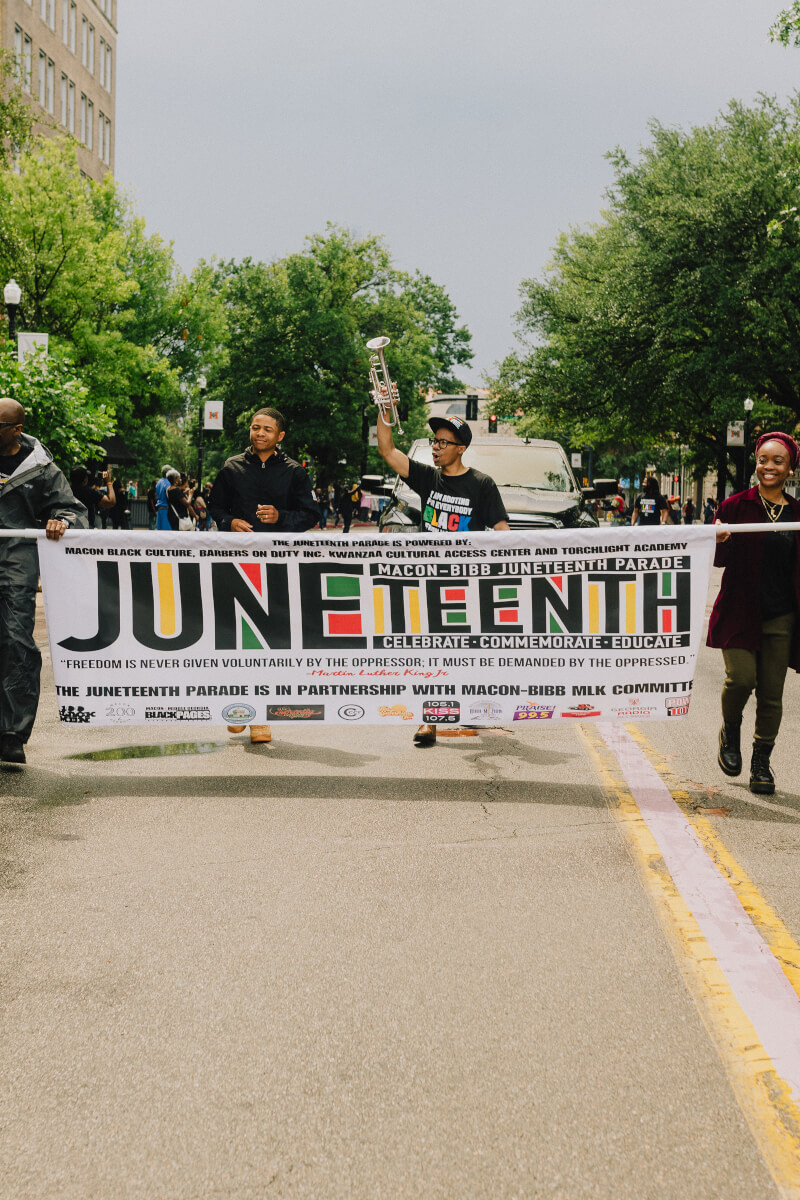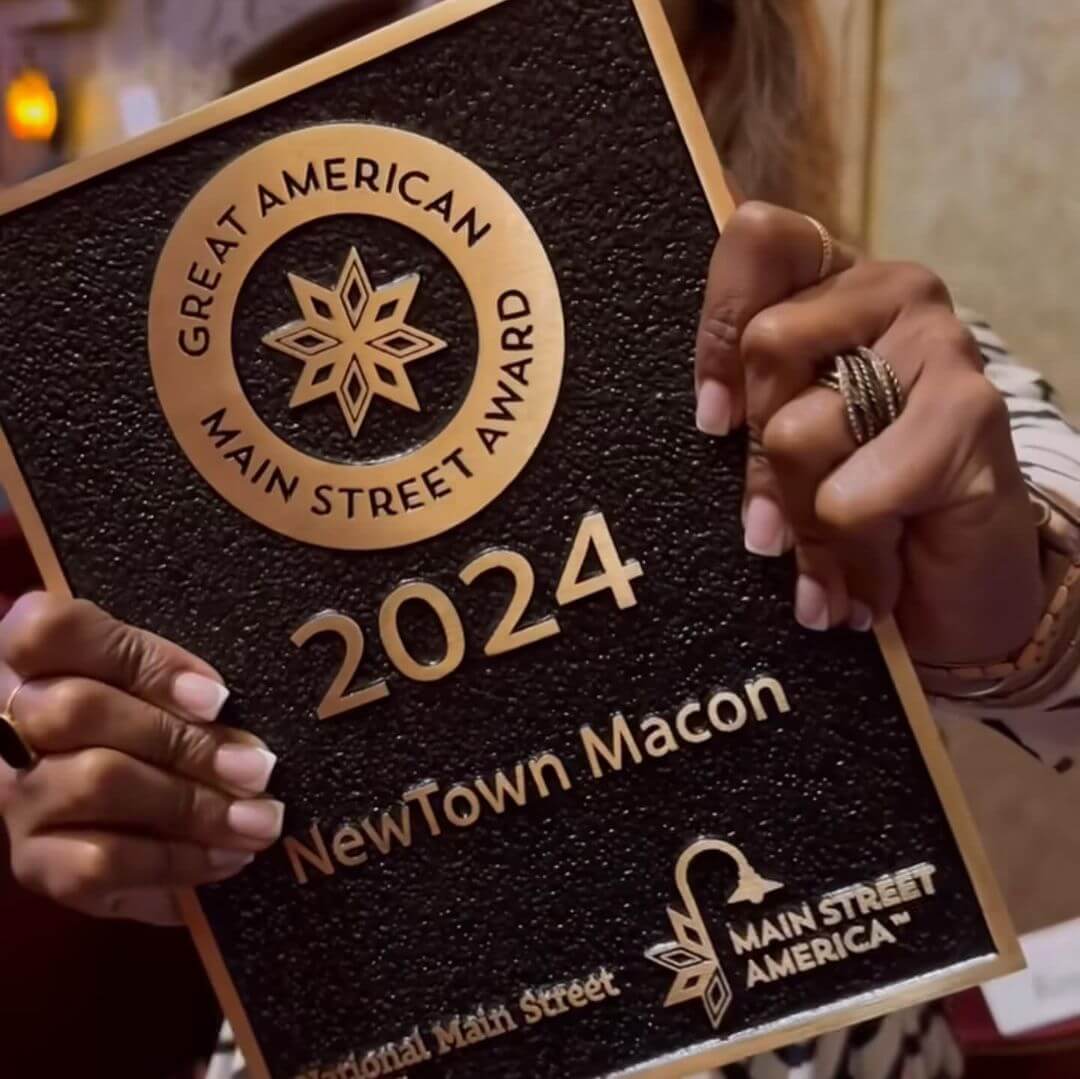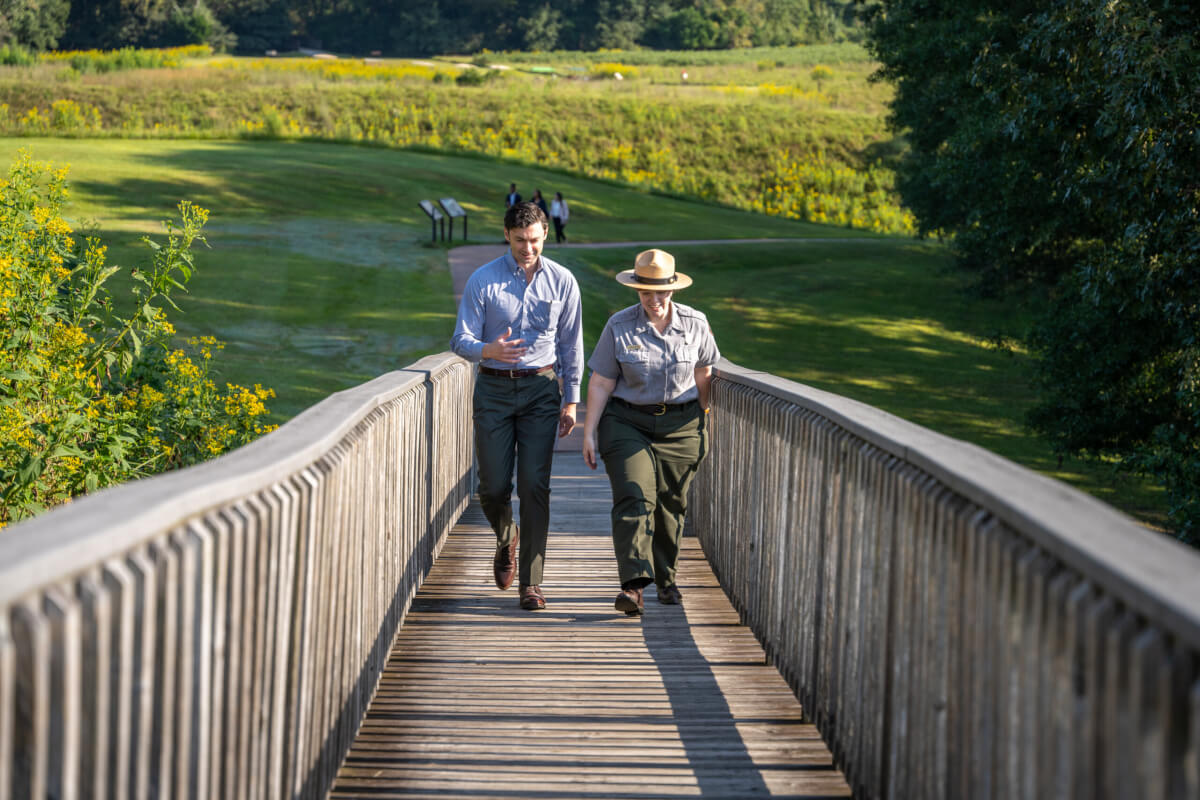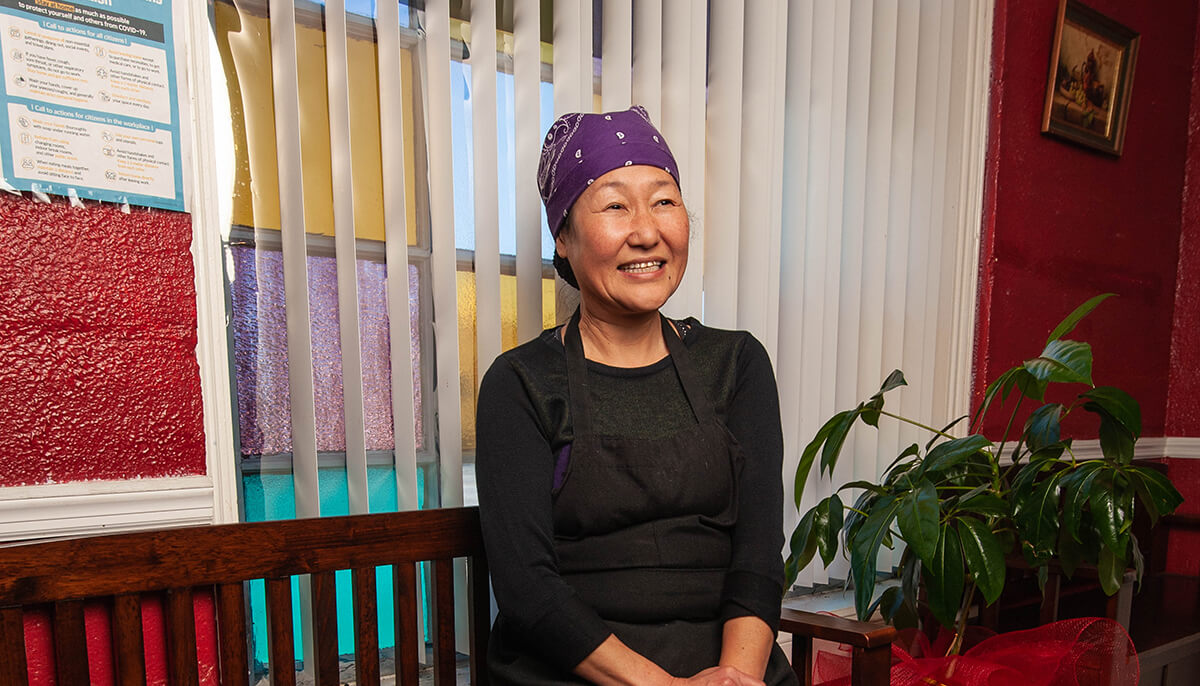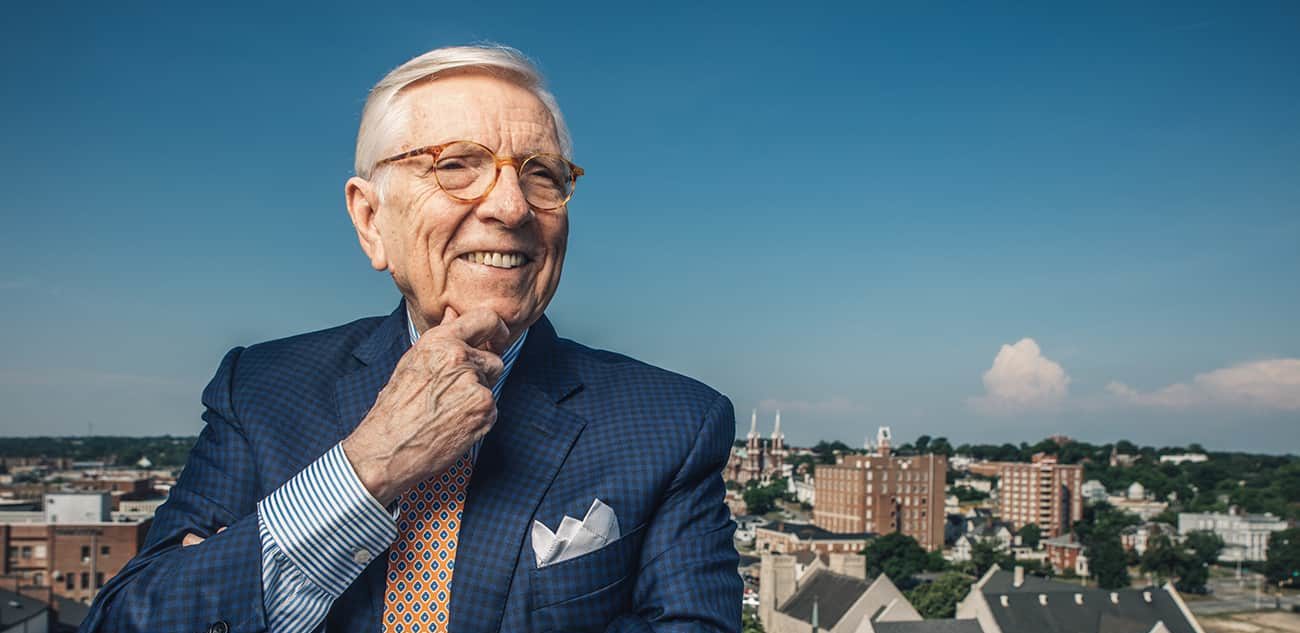
Kirby Godsey: Architect of Change
Godsey’s legacy stretches beyond his 27 years at Mercer University, and well into the future of Macon
By Traci Burns
Photography by Matt Odom
“Dr. Godsey is Macon’s own superhero,” said NewTown Macon’s Josh Rogers.
Kirby Godsey, however, who served as Mercer University’s president for 27 remarkable years and who has been an indispensable part of the rebirth of our downtown, prefers suits and ties over tights and capes. His powers lie in his impressive intellect, commitment to compassion and ability to think in both the immediate moment and the long-term.
“He instilled a systemic commitment at Mercer and in Macon to find solutions that are good for our businesses, good for our people and good for our community,” said Rogers. “I constantly see our leaders working to find a way for every stakeholder to win, and a lot of that innovative thinking about working toward the best possible solution goes back to Dr. Godsey personally and directly.”
Every superhero has a good origin story, and Godsey’s is rooted in a love of learning. The youngest of three brothers and son of a single mother (his father was killed in an accident before he was born), he grew up in Birmingham, Ala., where he worked at a soda fountain adjacent to the bustling Alabama Theater all through high school and college, an experience he considered both fun and formative.
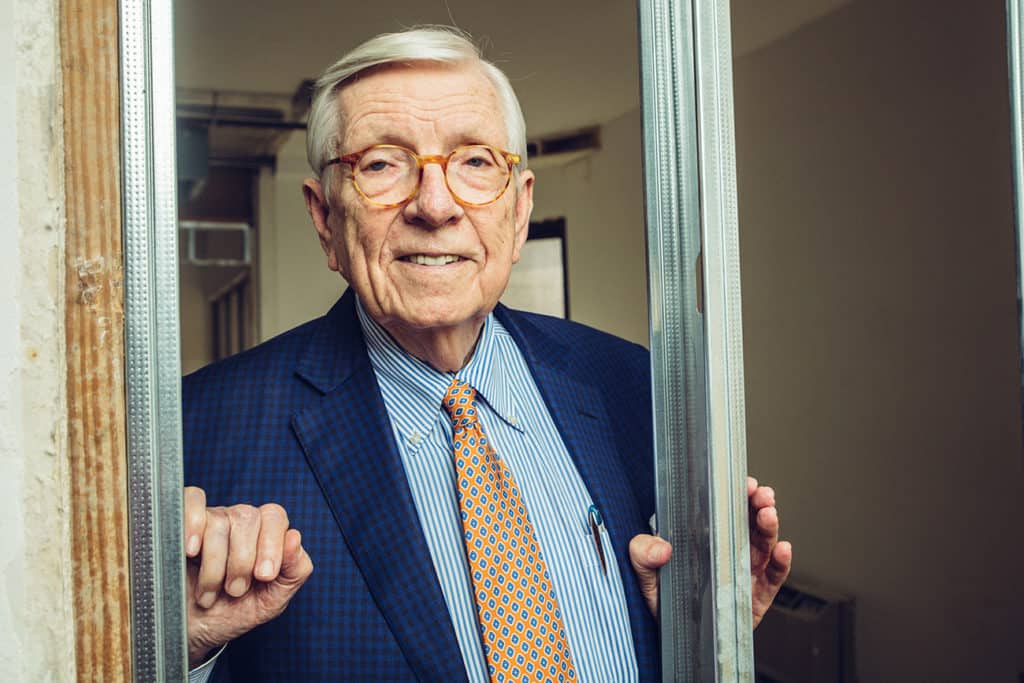
“I can honestly say, from being a soda jerk to being a university president, I’ve never had a job I didn’t like. I’ve always enjoyed working,” Godsey said.
After college, Godsey went to seminary in New Orleans, where he met Joan, the woman who would become his wife. He spent years earning multiple degrees in philosophy and theology, his two great academic loves, and put in some time teaching as well before eventually landing at Mercer, where he served as dean of the Liberal Arts College before becoming president, a position he held for 27 years.
‘To chart a course’
Godsey was a true architect of change at Mercer. He ushered in dramatic expansion, beginning many new projects and schools, all in the service of making Mercer a more comprehensive university with a common path and a common vision.
“My responsibility was to chart a course that I thought would provide the best future for the university in the long run,” Godsey said. “I had to think long-term about where Mercer should be going, and I’m pleased with what we did.”
A few controversial career moments offered Godsey the chance to further prove his mettle. In addition to his other myriad accomplishments, Godsey has published five books and is currently working on a sixth. His preferred subject matter lies at the crux of theology and philosophy, and his book “When We Talk about God, Let’s Be Honest” stirred up unexpected controversy.
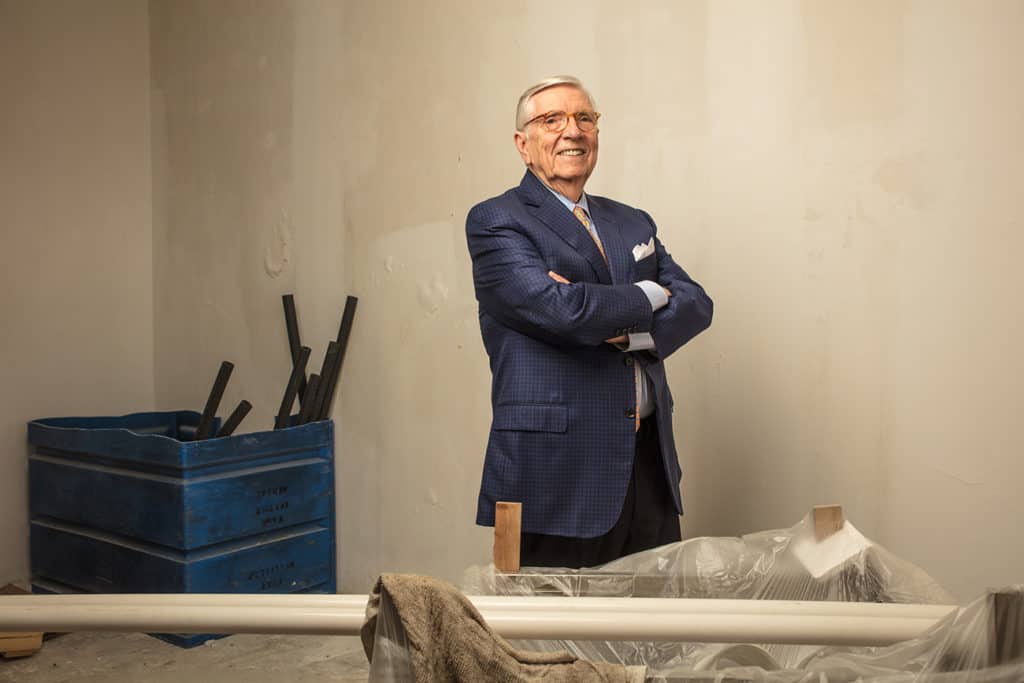
Banned by many Baptist bookstores at the time – which Godsey chuckles “was the best thing for sales” – the book sparked outrage because it questioned some aspects of faith that made more conservative readers uncomfortable. Godsey was confident in what he had written and why he’d written it, and he carried this same unflappable attitude when Mercer voted to sever ties with the Georgia Baptist Convention shortly before he retired as president.
“I recommended to the board that we discontinue our affiliation because, as I put it then, ‘the divergence of commonalities had become so great.’ That is Mercer’s heritage, and it deserves to be respected, but we are first and foremost a university, and as such we are committed to intellectual and religious freedom,” he said.
‘Re-founded, re-invented, re-created’
Building community connections was of deep importance to Godsey, especially considering Mercer’s location in the midst of Macon’s historic but then-neglected downtown.
“When I arrived, Mercer was alienated, to some extent, from its surrounding community, and I thought it was very important to bring them together. I wanted to find out how the university could serve this community and make it better,” he said.
Revitalization projects took place in nearby neighborhoods Huguenin Heights and Beall’s Hill. Stipends were offered for Mercer faculty who purchased homes there, and much care was taken to ensure that new residents would be good neighbors for those who had been longtime residents of these areas. These projects were successful and transformative, paving the way for Mercer’s involvement in a larger-scale downtown growth plan.
In 1996, NewTown Macon was established as a nonprofit public/private partnership whose goal was to restore downtown Macon to its former glory and re-establish it as a center of economic, cultural and social opportunity. Godsey was part of the brain-trust that came up with NewTown, and he served as its chair for 11 years.
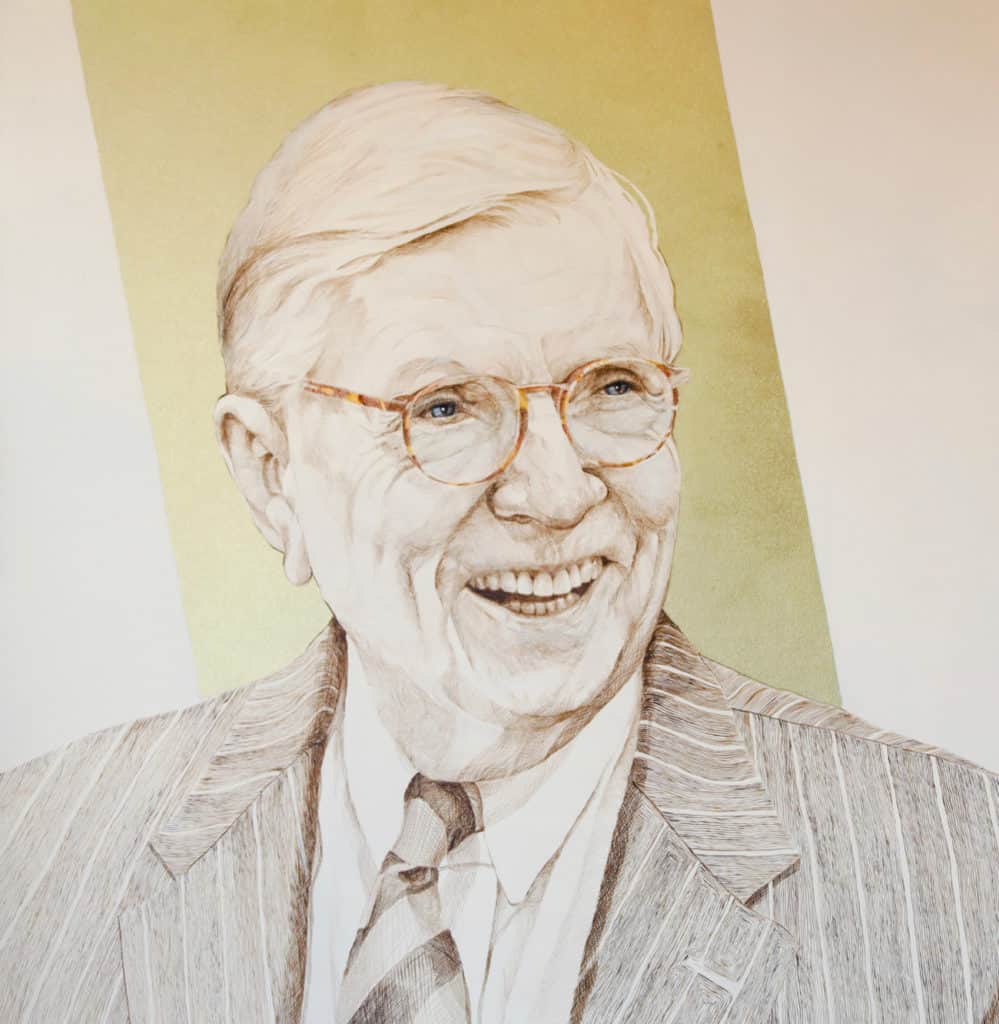
“When you attempt something like that, there are a lot of doubters, a lot of people who’d love to see it happen but don’t know how it’s possible,” Godsey said. “You have to take the long look at solving problems like this.”
Now, two decades since NewTown’s inception, the fruits of all that labor are coming to bear, as what used to be an abandoned and decaying city center is now teeming with activity, life and opportunity.
“As the founding chair of NewTown, Dr. Godsey inspired a culture of fearless confidence in Macon and Maconites,” said Rogers. “Dr. Godsey likes to say that ‘downtown is on the right side of history,’ and I believe that’s true, but I can’t think of any downtown that has revitalized from within quite the way Macon’s has, and I believe that’s by Godsey’s design.”
Godsey, in partnership with NewTown Macon, hopes to sustain this momentum with NewTown’s small business loan program, recently renamed the Godsey Initiatives Fund – humbly, he remarks that he didn’t choose the name. This endowment and line of credit allows traditionally underserved populations to access capital, credit and coaching, all aimed toward fostering entrepreneurship downtown.
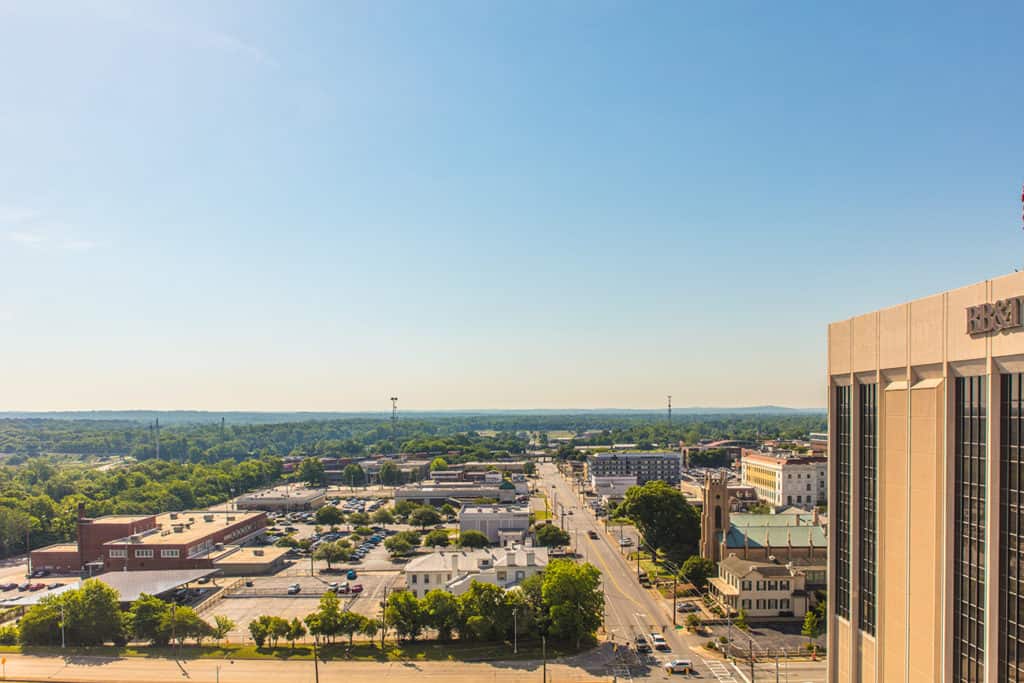
“An entrepreneur is a person who looks at what’s possible instead of simply managing what is,” said Godsey. “There are so many people, especially young people, who have wonderful ideas, who see the world in a different light, who need encouragement to take their ideas and put them to work. A community has to continually be re-founded, re-invented, re–created and that can only happen if we foster entrepreneurial thinking.”
‘Brighter, better’
Karen Lambert, president and CEO of the Peyton Anderson Foundation, draws many parallels between Godsey and Anderson, the deeply community-minded man who owned and published the Macon Telegraph for 20-plus years, then bequeathed the majority of his $35 million fortune to be used for the benefit of local residents.
“In his lifetime, Peyton Anderson was a visionary entrepreneur,” Lambert said. “Without a doubt, Kirby Godsey is the same kind of inventive, far-sighted trailblazer. He believes in reinvesting in the community he loves. His vision is a vital part of the Peyton Anderson Foundation, and he remains committed to a community that is progressive, vibrant and prosperous – and bold with our philanthropy. You never know when the next Peyton Anderson or Kirby Godsey will arise from today’s local entrepreneurs. We’re committed as a foundation to surrounding them with a sense of community, where they can be a part of something bigger, and lasting, in their endeavors.”
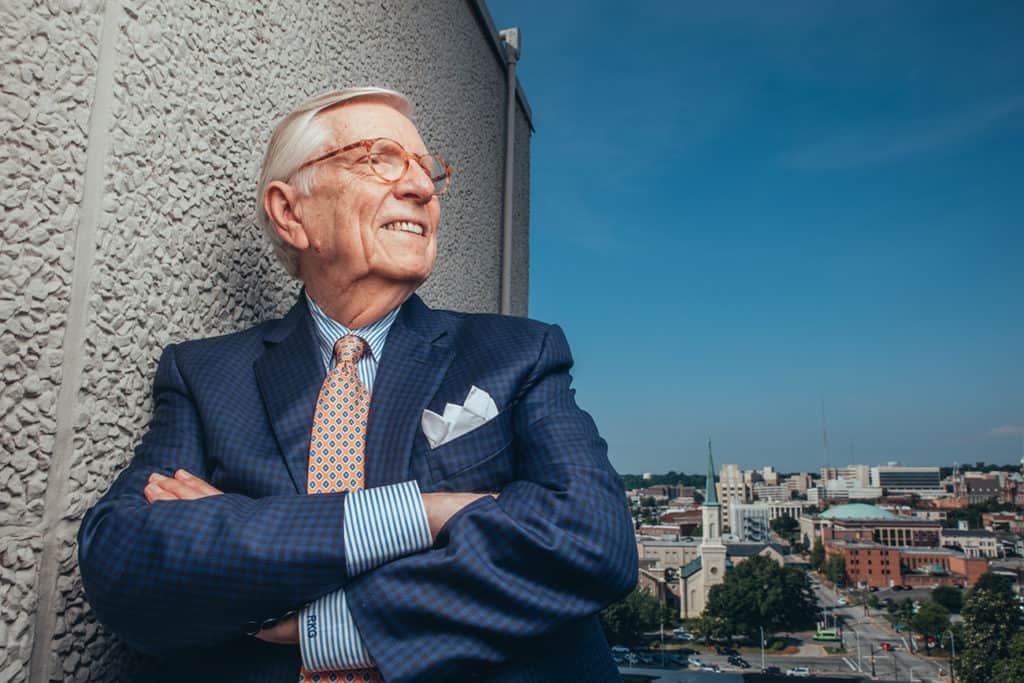
About fostering entrepreneurship, Godsey said, “Not everyone is an entrepreneur or needs to be, but every community needs a cadre of entrepreneurial leaders who are willing to think, ‘What’s next? How can we build on what we have and create an even better community for our future?’ We can never rest and say, ‘Well, Macon’s finished!’
“Macon is dynamic – what sustains it is a continuing flow of ideas and people and energy and hope for solving problems that have remained unsolved. It takes entrepreneurship to solve some of the knottiest problems we face, and it takes people willing to rethink old ideas and consider new solutions.”
We’re beginning to see progress in some of our most difficult areas. Our public schools, under the leadership of hardworking, humble Dr. Curtis Jones – recently honored as 2019’s National Superintendent of the Year – are experiencing a much-needed turnaround.
“Education is critical to the success of any community, and there was an era in which too many people had stopped believing in our public schools, and that’s changing,” Godsey said. “That’s a great sign of hope for the future – that newfound confidence is an important marker of progress, and it’ll pay off in the future and build into the growth of our city.”
Godsey has been publicly urging Macon to address these issues for years, and he implores us to take advantage of this current transformative moment.
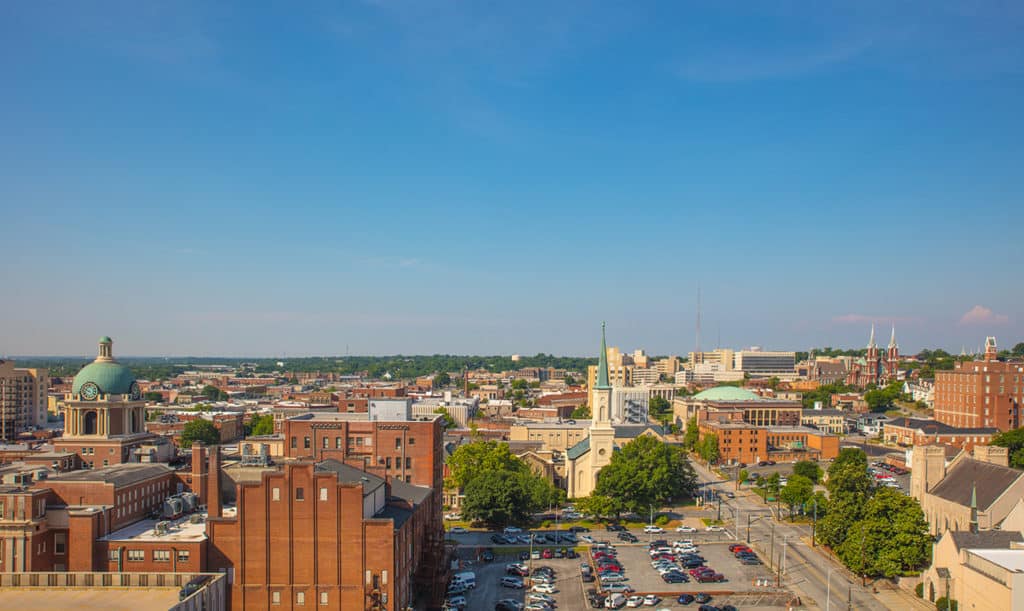
“The reality is that no community can ever rise above its success or failure to educate. Economic advances cannot be sustained without high-performing schools. Social ills cannot be overcome without the healing power of learning,” he said.
Our city has forever been changed for the better by Godsey’s vision. Anyone seeking inspiration would do well to study his example of patient, confident, compassionate leadership. Always forward-thinking while taking time to respect history and the lessons it teaches, Godsey’s centeredness and genuine appreciation for humanity have made him a successful entrepreneur, a respected philosopher, and a beloved resident of Macon.
And, like, all good superheroes, he’s inspired legions of others to follow in his path. We’ll continue to see his influence for years to come, so let’s do him – and ourselves – justice, and continue to build a city center we can all be proud of.
“I think we today have more momentum and energy for developing a prosperous future than any time I’ve been in Macon,” Godsey said. “The flow of ideas is constant, and we’re bringing in new people and continuing to foster new generations and giving them the freedom to reimagine the community and what it can become. That gives me the greatest hope. Macon doesn’t have any problems that we can’t solve. We’ll always have challenges, of course, but we can come together as a city to be bigger than our challenges, brighter, better.”




